 Okay, so I was reading this article over at the New York Times about black film stars appealing to international audiences. The writer of the piece didn't seem to agree, but apparently many of the people he (Michael Cieply) interviewed seem to think that intertional audiences are racist. LOL! Apparently because Australian, British, Spanish, whatever, audiences don't go and see movies like Last Holiday or The Best Man or Barbershop or Something New or Last Friday or anything by that Tyler Perry naffwit is because they star African Americans.
Okay, so I was reading this article over at the New York Times about black film stars appealing to international audiences. The writer of the piece didn't seem to agree, but apparently many of the people he (Michael Cieply) interviewed seem to think that intertional audiences are racist. LOL! Apparently because Australian, British, Spanish, whatever, audiences don't go and see movies like Last Holiday or The Best Man or Barbershop or Something New or Last Friday or anything by that Tyler Perry naffwit is because they star African Americans. “The international marketplace is still fairly racist,” said James Ulmer, proprietor of the Ulmer Scale, which compiles input from about 100 international film professionals in a periodic rating of stars’ “bankability.”
 Here's a wacky, totally out-of-the-blue left field thought. Maybe we don't go see those movies because we don't like bad movies? Sure, they can talk all they want about how we don't see "urban" movies (a fact that at least I've known about Australia for years), but we could also talk about the fact that most of these movies are bad. I went to Rotten Tomatoes and checked out the tomato rating for a bunch of these movies with predominant black casts.
Here's a wacky, totally out-of-the-blue left field thought. Maybe we don't go see those movies because we don't like bad movies? Sure, they can talk all they want about how we don't see "urban" movies (a fact that at least I've known about Australia for years), but we could also talk about the fact that most of these movies are bad. I went to Rotten Tomatoes and checked out the tomato rating for a bunch of these movies with predominant black casts.Soul Food - 88% (fresh)
Barbershop - 83% (fresh)
Something New - 59% (rotten)
Last Holiday - 55% (rotten)
Deliver Us From Eva - 42% (rotten)
All About the Benjamins - 31% (rotten)
Tyler Perry's Madea's Family Reunion - 29% (rotten)
Are We There Yet? - 12% (rotten)
 Yes, obviously, Australian audiences (and British ones and French ones and Indian ones, etc) all make crap movies popular, but we've got out own crap films to wade through. The two best movies from that random list (going off the top of my head was I) are Soul Food and Barbershop - two movies I have seen and enjoyed (especially Soul Food, a lot, which I saw on TV). But there's just the simple fact of the matter that "urban" stories don't transfer well to overseas audiences. We don't have the same sense of humour that these films have. The African American culture isn't remotely similar to any culture here. Sure, stuff like The Pursuit of Happyness, Dreamgirls and Big Momma's House (ugh) were popular here, but they're bigger films. They're very Hollywood with big stars. And stuff like Deja Vu, which was a big hit here, can hardly be called an "urban film". Those ones up above (and others like it) are niche films made for a specific audience.
Yes, obviously, Australian audiences (and British ones and French ones and Indian ones, etc) all make crap movies popular, but we've got out own crap films to wade through. The two best movies from that random list (going off the top of my head was I) are Soul Food and Barbershop - two movies I have seen and enjoyed (especially Soul Food, a lot, which I saw on TV). But there's just the simple fact of the matter that "urban" stories don't transfer well to overseas audiences. We don't have the same sense of humour that these films have. The African American culture isn't remotely similar to any culture here. Sure, stuff like The Pursuit of Happyness, Dreamgirls and Big Momma's House (ugh) were popular here, but they're bigger films. They're very Hollywood with big stars. And stuff like Deja Vu, which was a big hit here, can hardly be called an "urban film". Those ones up above (and others like it) are niche films made for a specific audience. Australia has it's own niche "urban" films if you will. We have Australian-made films. Those films I mentioned feel destinctly "american". Very much made specifically for African American audiences. Just like a movie such as the Aussie hit Ten Canoes, which features an all-black cast, is a very typically aussie film that wouldn't sell to American audiences. Does that make Americans racist to Australian indiginous people? Hardly. It just means their stories don't translate.
Australia has it's own niche "urban" films if you will. We have Australian-made films. Those films I mentioned feel destinctly "american". Very much made specifically for African American audiences. Just like a movie such as the Aussie hit Ten Canoes, which features an all-black cast, is a very typically aussie film that wouldn't sell to American audiences. Does that make Americans racist to Australian indiginous people? Hardly. It just means their stories don't translate. One of the biggest genres for Australia is the "dance" movie. Just recently there were titles like Step Up and Take the Lead. Both were much bigger hits in Australian than the US (taking population into account), but that's because they're stories that transcent race and nationality. It also helps that they are ingrained in popular music and if there is one part of Australian life that has opened the door to black culture, it's music and the teen audience. For instance, this week alone, the Australia ARIA singles chart (our Billboard if you will) Top 20 features two songs by Akon, one with Eminem, some Beyonce, P Diddy and TI who features on a Justin Timberlake track.
One of the biggest genres for Australia is the "dance" movie. Just recently there were titles like Step Up and Take the Lead. Both were much bigger hits in Australian than the US (taking population into account), but that's because they're stories that transcent race and nationality. It also helps that they are ingrained in popular music and if there is one part of Australian life that has opened the door to black culture, it's music and the teen audience. For instance, this week alone, the Australia ARIA singles chart (our Billboard if you will) Top 20 features two songs by Akon, one with Eminem, some Beyonce, P Diddy and TI who features on a Justin Timberlake track.I don't see American music charts particularly opening up to many foreign music trends. Dance music is massive in Australia and Europe yet it seems as if American music buyers are positively allergic to the stuff. I'd be shocked to see artists along the lines of Sneaky Sound System, Bob Sinclar in the US charts. Sure, Justin Timberlake is dancy, but he's Justin Timberlake. And we all know that hip-hop and R&B music (other than Missy Elliot) has ditched it's old school street dance styles and is now (still) obsessed with minimalist drones who can't speak properly. It's hard to imagine artists such as Salt n Pepper or Zhane or any other number of '80s and early '90s artists of that vein being popular today. You know, a time when artists like that weren't afraid to bust a move because their music actually called for it.
“For an international audience, when it looks like an urban movie with an African-American star in the lead, they just turn it off, and I find that incredibly discouraging,”
 But, back to my original point about the movies. All these movies that are classified as "urban" are popular in America because they have, shocking I know, an African American audience. In Australia our African population (which is growing, btw) isn't connected to the African American culture that we typically see in the movies. It's the reason why Bollywood movies are just as successful here as they are in America. There is actually an audience for them in both countries. There isn't an audience for a movie like Barbershop down here (I saw it on DVD due to good reviews from America, but otherwise I wouldn't have looked twice and I'm not a typical movie watcher). Just like, as I've said, there isn't an audience in America for many Australian films.
But, back to my original point about the movies. All these movies that are classified as "urban" are popular in America because they have, shocking I know, an African American audience. In Australia our African population (which is growing, btw) isn't connected to the African American culture that we typically see in the movies. It's the reason why Bollywood movies are just as successful here as they are in America. There is actually an audience for them in both countries. There isn't an audience for a movie like Barbershop down here (I saw it on DVD due to good reviews from America, but otherwise I wouldn't have looked twice and I'm not a typical movie watcher). Just like, as I've said, there isn't an audience in America for many Australian films.That doesn't mean Americans are bigotted towards Australians. That's a ridiculous argument to make and I can't believe that anyone would actually say that and mean it. It's actually quite insulting. How about we shove Ten Canoes into a couple of thousand cinemas in America and if it doesn't make money we'll cry "RACIST". Australia is plenty multi-cultural. There's a reason why something such as My Big Fat Greek Wedding do well - there's an audience for them. A big audience. Australia has the largest Greek population outside of Greece. We don't, however, have a large African American population (as hard as it may be to believe that *teehee*)
“I always call international the new South, ” said Reginald Hudlin, the director of “House Party” and “The Ladies Man”
 Yeah. That's us alright. "THE NEW SOUTH". Uh-huh. Cause we don't go ga-ga over every movie about a man in a fat suit and dress? Yeah. Thanks a lot.
Yeah. That's us alright. "THE NEW SOUTH". Uh-huh. Cause we don't go ga-ga over every movie about a man in a fat suit and dress? Yeah. Thanks a lot.Sorry if this sounded rambled and cobbled together, but, well, it was. I was just writing off the cuff so I've probably repeated myself multiple times.

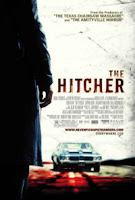
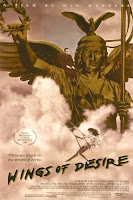
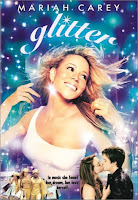
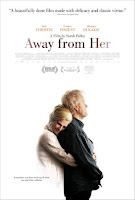
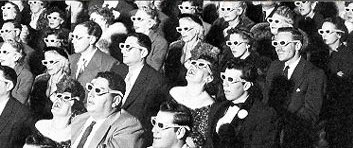
5 comments:
In America in often seems like people can be a bit trigger happy when it comes to accusing people of being racist.
Agree with everything you said.
i am african and i relish watching african-american films. i dont think being directly connected to the culture makes you more into it.
um, hello Something New was a great movie. It was not low brow like Soul Plane.
But I enjoyed reading your argument and I think the real question International audiences aside is why are stories for African American left to potty-humor-screwball comedies.
Hmm. Sorry I only just realised you guys had commented.
Aulelia, I don't think being directly connected to a culture matters much either (I didn't know a thing about Russian Ark for example but loved it all the same) but it is a clear and finite reason for why these films fail at the international box office.
For the large part, the African-American subculture isn't one that "crosses borders" if you will. That's why the films that are international hits are usually all hip-hop based. it's one aspect of African-American culture that is "international".
Anon, how did I forget Soul Plane?!?! :P
You do bring up a good point. That's why the best one (at least that I've seen) was Soul Food. That spoke to so much more than so many of these films. If there were more movies like that in the world I'd be a happy guy.
Post a Comment